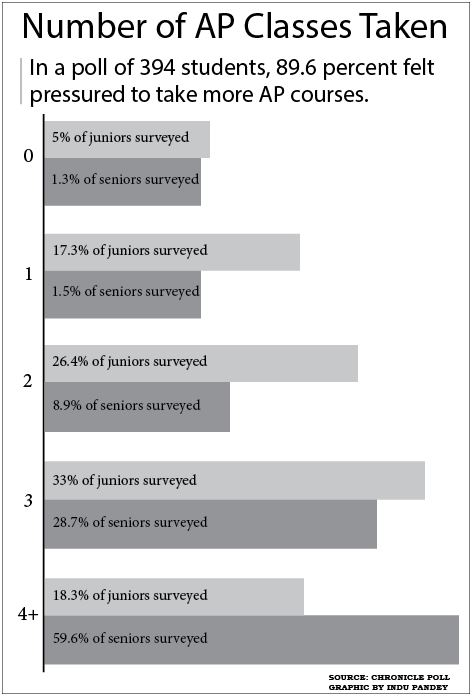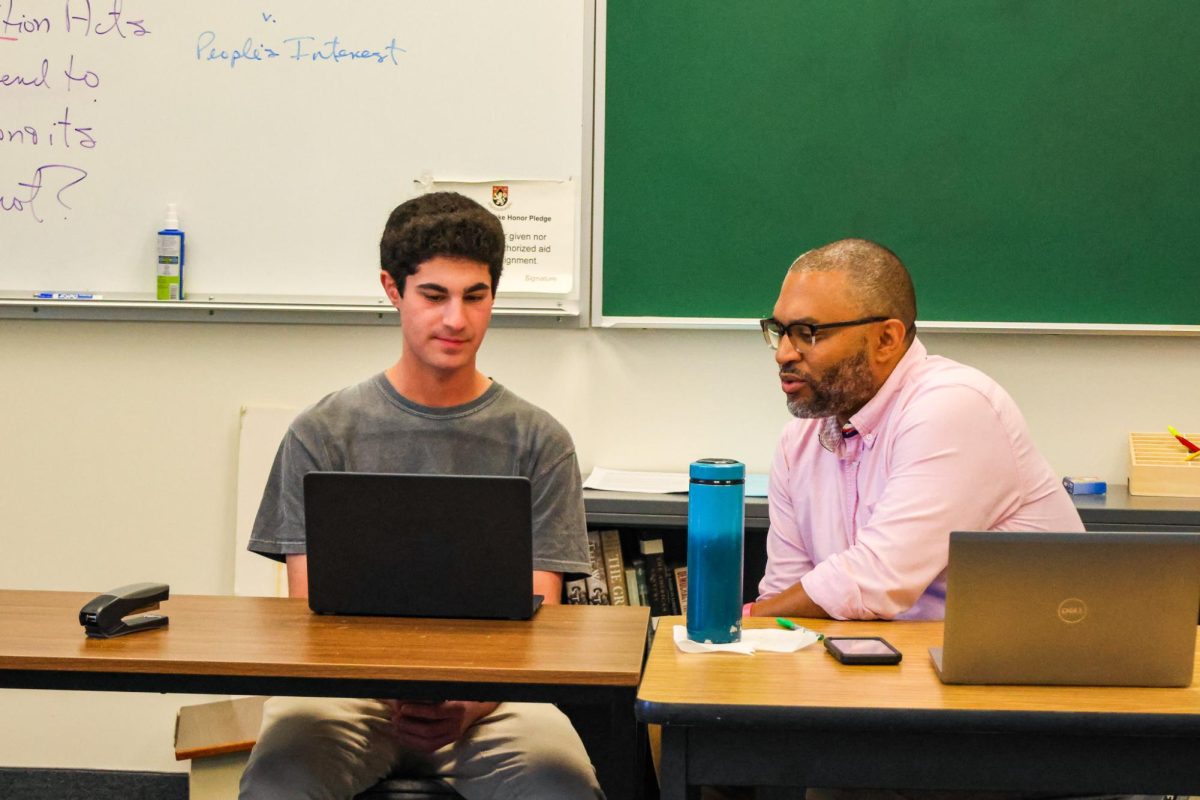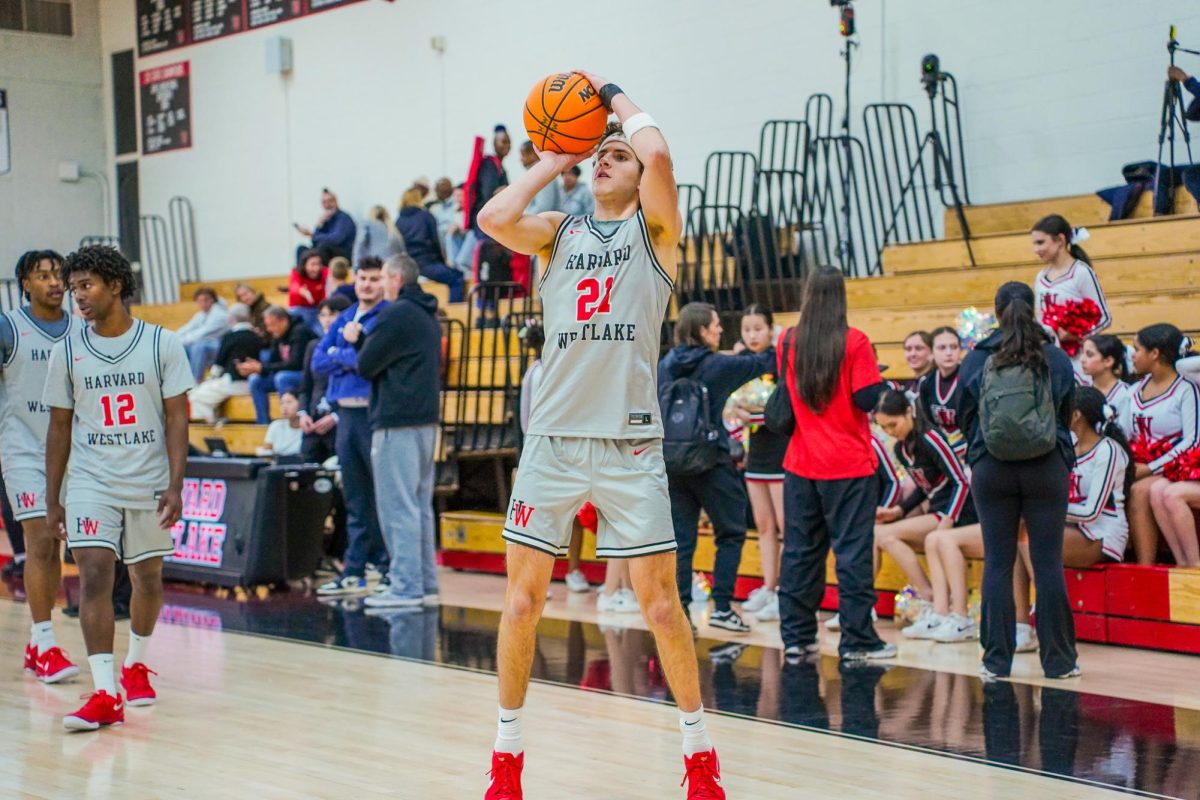School administrators and faculty are discussing placing a limit on the number of AP classes students are able to take throughout their high school careers as part of their ongoing discussion about the happiness and wellness of students. Currently, they have not decided if honors classes would be included in any future limits.
“For lots of reasons, I am hopeful that we will get to a policy decision by the end of this year,” Interim Head of Upper School Liz Resnick said. “That does not mean implementation in the fall, because if we make some decisions that mean adjustments to curriculum, we’re going to need lead time to that, and we will also need to telegraph that to current and incoming families so everyone understands what it is.”
Limiting the number of AP classes students can take in a given year would encourage students to broaden academic horizons and give a greater opportunity to explore other interests, Resnick said.
At the same time, the school is looking to ensure that while the happiness and wellness of students improve, the academic rigor and intellectual atmosphere of the school do as well, President Rick Commons said.
“We’re hoping not to compromise student health, not to compromise the intellectual atmosphere and academic rigor of the school, and not to compromise college admission outcomes,” Commons said. “We’re hoping, if anything, to make the academic and intellectual life stronger and the outcomes better, and the health and balance of the student body better without compromising anything, and I don’t know how we’re going to do it, but there’s a lot of studying going on.”
Upper School Deans Department Head Beth Slattery said that the number of APs and honors classes students must take in order to be a competitive applicant from Harvard-Westlake to the most selective universities has increased over time. Ten years ago, the average student applying to Harvard and Stanford had taken 10 AP or honors classes throughout high school, and last year the average applicant had taken 15.
“I definitely think that people believe that they need to take APs to get into college,” Phoebe Sanders ’17 said. “The thing is, if the school enforced this limit, then those receiving our new transcripts will understand [that GPA’s will change].”
Information from the 2013 student workload survey, in which many students reported six hours of sleep or less per night as well as large amounts of nightly homework, spurred conversations among administration about what measures they could take to improve overall student wellness.
“If we are to make good on the promise that happiness and balance will become primary values in the culture and the experience of students, we can’t just do business as usual and expect things to change,” Resnick said.
Resnick said that although the administration has been discussing the possibility of this change for three years, she wants to finalize the proposal soon so that the new Head of the Upper School Laura D. Ross won’t have to chair a change in policy decision during her first year working at the school.
According to upper school deans, when planning coursework for the upcoming year, students are often more concerned about choosing AP and honors classes rather than classes that really interest them, Resnick said.
“I feel like we have commodified things so much, at a place that is about intellectualism and ideas, that students are more interested in strategy,” Resnick said.
Resnick said that as the average number of AP classes students take has increased, the number of arts courses that students enroll in has decreased because they have less time for non-academic classes in their schedules.
“I think it is great that the school is looking at this issue because we, in the art department, as well as the whole school, should want to develop the whole person, and when students feel that they have to sign up for an AP class to get the grade bump, they are not doing it because they are passionate about that class,” Visual Arts Department Head Cheri Gaulke said.
Some students believe that the proposed cap would only serve to limit their choices, and that they should be allowed to take as many AP and honors courses as they choose to.
“I feel like APs added real challenge to my curriculum and were a good way for me to grow as a student,” Oliver Friedman ’17 said. “I think it will place students at a significant disadvantage when compared with other elite private high schools, and on a purely moral level, I think it’s really unfair to limit how much students can push themselves.”
Harvard-Westlake isn’t the first school to consider placing a restrictive cap on the number of AP classes students can take per year.
The Horace Mann School in New York City, ranked as the sixth best private high school in the country according Niche.com, only allows their students to take AP classes during their junior and senior years and limits the number to three.
While Harvard-Westlake’s proposed policy is focused on adding more balance to student’s academic careers, Horace Mann is looking for a bigger shift away from AP courses entirely.
“Since we’re a private school, we want more control of the curriculum, so we are moving away from AP classes, and they will begin to be eliminated in the coming years,” Horace Mann senior Jessie Millman said.


































